4 Best Protein Treatments For Natural Hair | Types & Benefits
Give your dull-looking natural locks the nourishment they had always craved for.

Image: Shutterstock
Protein treatment for natural hair care is worth trying, at least, that is what the trends suggest. Amino acids, which form the building blocks of protein, have hair-strengthening properties. If you are not convinced yet, read this article to know more about this novel therapy and the best protein products to choose from for hair care. Read on!
In This Article
What Is Protein Treatment?
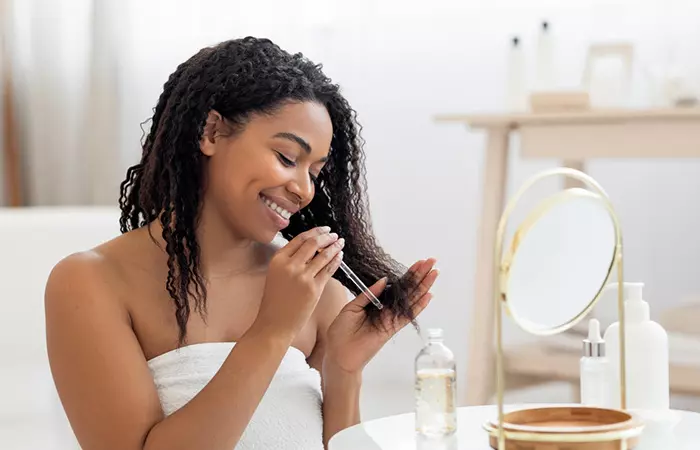
Do you have split ends? Is your hair weak, dry, and brittle? A protein treatment is a temporary yet effective solution for such problems. Keratin, the natural protein in our hair, is highly prone to damage caused by exposure to the sun, wind, pollutants, and chemical treatments (1). Protein treatments nourish and strengthen your hair externally, just like conditioning treatments. You can also use protein for hair growth. It reinforces the hair’s structure and restores its strength, improving its overall health. Protein treatments come in various types which are listed in the next section.
Key Takeaways
- Protein treatments play an important role in repairing, nourishing, strengthening, and volumizing damaged hair.
- You can choose a light protein hair treatment or a deep penetrating treatment based on your hair needs.
- Choose from a natural DIY protein treatment at home, a store-bought treatment, or book an appointment at the salon.
Types Of Protein Treatments
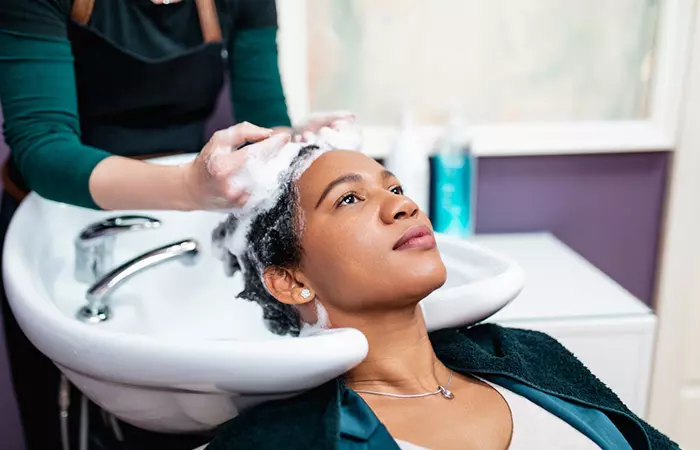
- Protein Packs
These are used to treat mild hair damage and are good for regular hair maintenance every 1-2 months.
- Light Treatments
These treatments are beneficial for slightly damaged hair and are also known as conditioning masks.
They are ideal for regular hair maintenance.
- Deep Penetrating Treatments
Deep penetrating treatments are perfect for treating moderately damaged hair. They are known for their intense moisturization properties and are recommended to be used once every two weeks.
- Reconstructors
Reconstructors are used to treat severely damaged hair and are meant to be used once every two weeks.
Observing your hair closely and understanding more about your hair health will help you determine if you should get a protein treatment. Understand further in the next section.
How Do You Know If You Need A Protein Treatment?
- Highly porous hair: It contains breaks and openings in the strands that expose the inner cortex to various stresses. This condition makes the hair absorb and lose moisture rapidly, and results in frizzy, tangled hair.
- Stretchy, mushy, and stringy hair: Dull and stringy hair lacks moisture and protein. It might lack shape and feel overly soft.
- Low elasticity: Spray water on around 10 hair strands and hold them tightly. Gently pull the hair. Your hair lacks protein if it breaks while stretching or doesn’t revert after stretching.
Protein treatments can give your damaged hair a new lease of life. To know more about how they benefit your hair, check out the next section.
Benefits Of Protein Treatment For Natural Hair
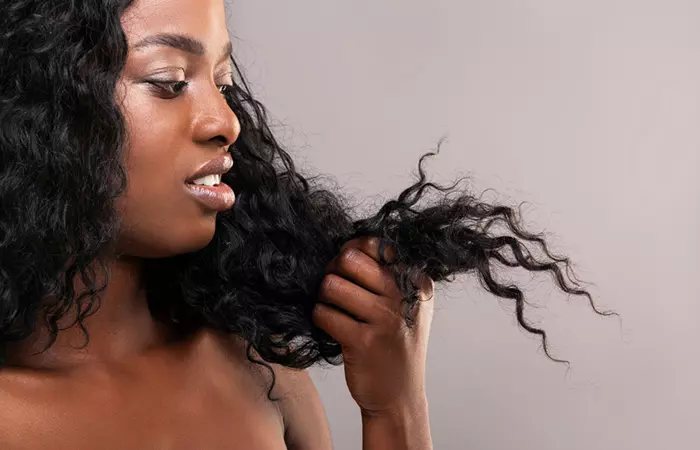
- Softens Hair – Protein treatment nourishes and softens your hair by removing the dead cells from your scalp and adding protein externally (2).
- Strengthens Strands – Protein treatment directly infuses hydrolyzed proteins into your hair follicles and hardens the cuticles, thereby strengthening your strands (3).
- Moisturize Your Hair – By getting rid of the dead cells on your scalp and injecting proteins, protein treatment moisturizes your hair more effectively (2).
- Extra Body And Volume – Ultimately, protein treatment makes your hair thicker, longer, and healthier (3).
If you don’t want to spend a bomb on getting a protein treatment at a salon, here are some natural protein treatments that you can try at home.
 Trivia
TriviaNatural Protein Hair Treatments
Avocado
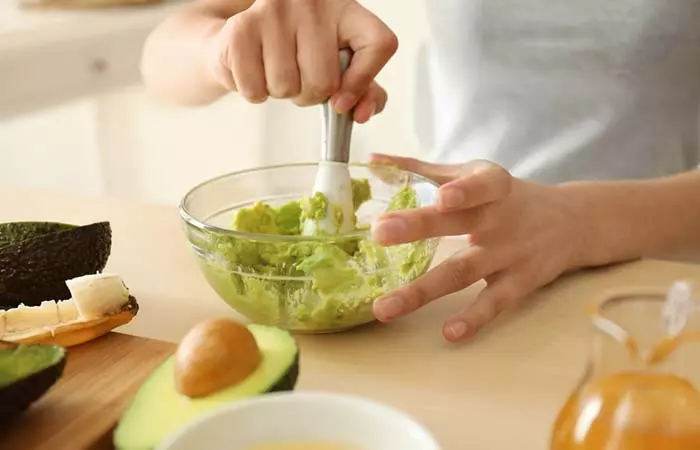
Avocado contains fatty acids and proteins that repair, strengthen, and nourish damaged hair. You can prepare a DIY protein-rich hair mask by simply mashing a couple of avocados or mixing mashed avocados with mayonnaise. Apply this mask all over your hair and scalp to condition and nourish them
Greek Yogurt
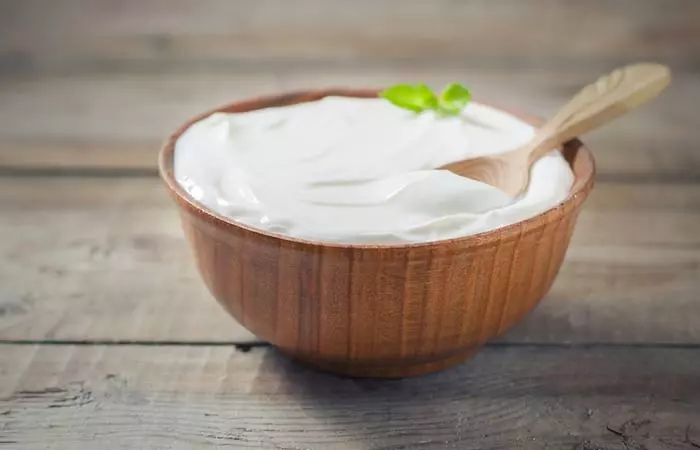
Dairy products, such as yogurt and sour cream, contain proteins and lactic acid that cleanse your hair. You can prepare a protein conditioner by mixing an egg and some yogurt. Leave the mixture on your hair for about 20 minutes before washing it off with lukewarm water (5).
Maryam Hampton, a YouTuber, shares her DIY protein treatment recipe to get stronger hair. She uses a mixture of mayonnaise, eggs, and extra virgin coconut oil, and applies it over her hair. While showing the results, she says, “This is how my hair looks after treatment is fully out of my hair, my curls are looking pretty defined. Look how frizz-free and defined my curls are (i)!”
 Quick Tip
Quick TipHow To Make A Natural Protein Treatment For Natural Hair
You can prepare your own protein treatment at home by using a combination of ingredients. You can make a protein-rich hair pack using eggs, avocado, or greek yogurt and combining them with conditioning ingredients like coconut oil, honey, coconut milk, banana, cream, or mayonnaise. Warm up the mixture, apply it all over damp hair, and cover your head with a shower cap. Leave the mixture on for about 30-40 minutes and then wash your hair thoroughly.
Protein treatments are essential to repair, nourish, strengthen, and volumize damaged hair. They intensely moisturize your hair to restore its health. You can prepare your own protein treatment at home, buy it from a store, or go to a salon to get it done. However, one thing you need to remember is that your hair can harden or experience breakage if you use these treatments too often or for too long. So you need to assess your hair’s needs and plan your protein treatments accordingly.
If you are using any chemicals on your hair regularly – like hair color, perms, or relaxers – then you should consider using a protein product regularly for hair conditioning and hair strengthening. It will add the protein back to your hair that these chemicals can remove or destroy, thus aiding in the process of hair restoration and hair growth. It will also make your hair color more fade-resistant.
Infographic: Signs That Your Hair Needs Protein Treatment
Protein treatment adds strength and tensility to your hair. While you may be keen to give your hair that extra bit of TLC, it is essential to know your hair type and condition to decide whether you really need a protein treatment. Check out the following infographic to learn about the signs that tell if your hair needs this treatment. Illustration: StyleCraze Design Team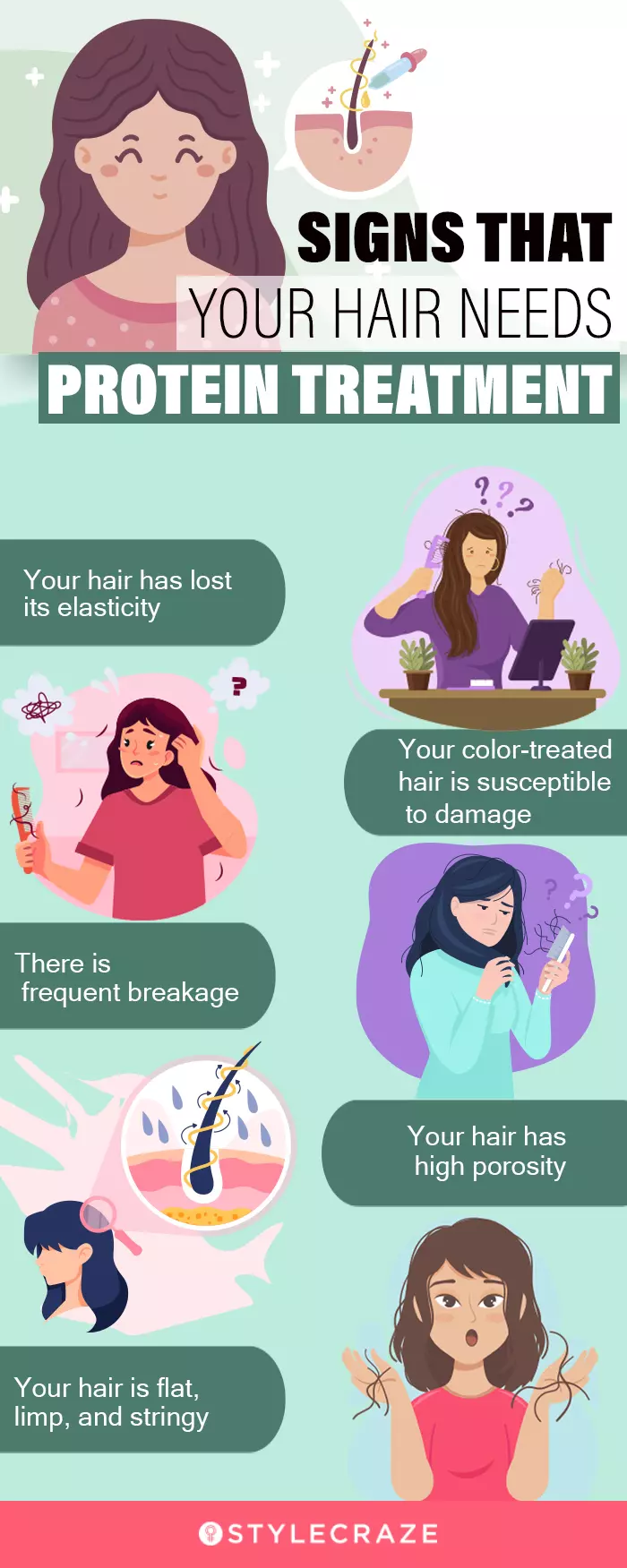
A protein treatment for natural hair repairs split ends and weak, dry, and brittle hair. They replenish and fortify the hair externally. There are different types of protein treatments, like protein packs, light treatments, deep penetrating treatments, and reconstructors. There are many benefits to using a protein treatment on natural hair. They soften, moisturize, and strengthen your hair, leaving you with thicker, longer, and healthier strands. You can also try natural protein treatments made with natural ingredients like avocado and greek yogurt to maintain hair health by providing optimum hair nourishment. Apply a protein treatment on your hair once or twice a month to reap its benefits like good hair elasticity and hair hydration. Don’t overuse the treatment as it may lead to your hair hardening or breaking.
Frequently Asked Questions
Is rice water a protein treatment?
Yes. Rice water is an effective DIY protein treatment as it contains amino acids that make your hair stronger and softer.
Should I wash my hair before a protein treatment?
Yes. For the protein to bond to your hair, it is essential that your hair is clean.
Is shea butter a protein treatment?
No. Shea butter is a moisturizing treatment but not a protein treatment as it doesn’t contain any protein.
Which is better – protein or keratin treatment?
It depends on your preference and hair needs. Keratin treatment involves coating the hair strands with keratin to straighten them and maintain their softness and endurance, while protein treatment uses different types of proteins, including keratin, to maintain hair length and restore its vitality.
Do you use conditioner after a protein treatment?
Experts advise following up a protein treatment with a deep conditioner to provide enough hydration to your hair shafts.
Are deep conditioning and protein treatment the same?
No. Protein treatment repairs damaged hair with protein, and deep conditioning balances water levels in hair fibers to maintain strong hair.
Illustration: Best Protein Treatments For Natural Hair | Types & Benefits
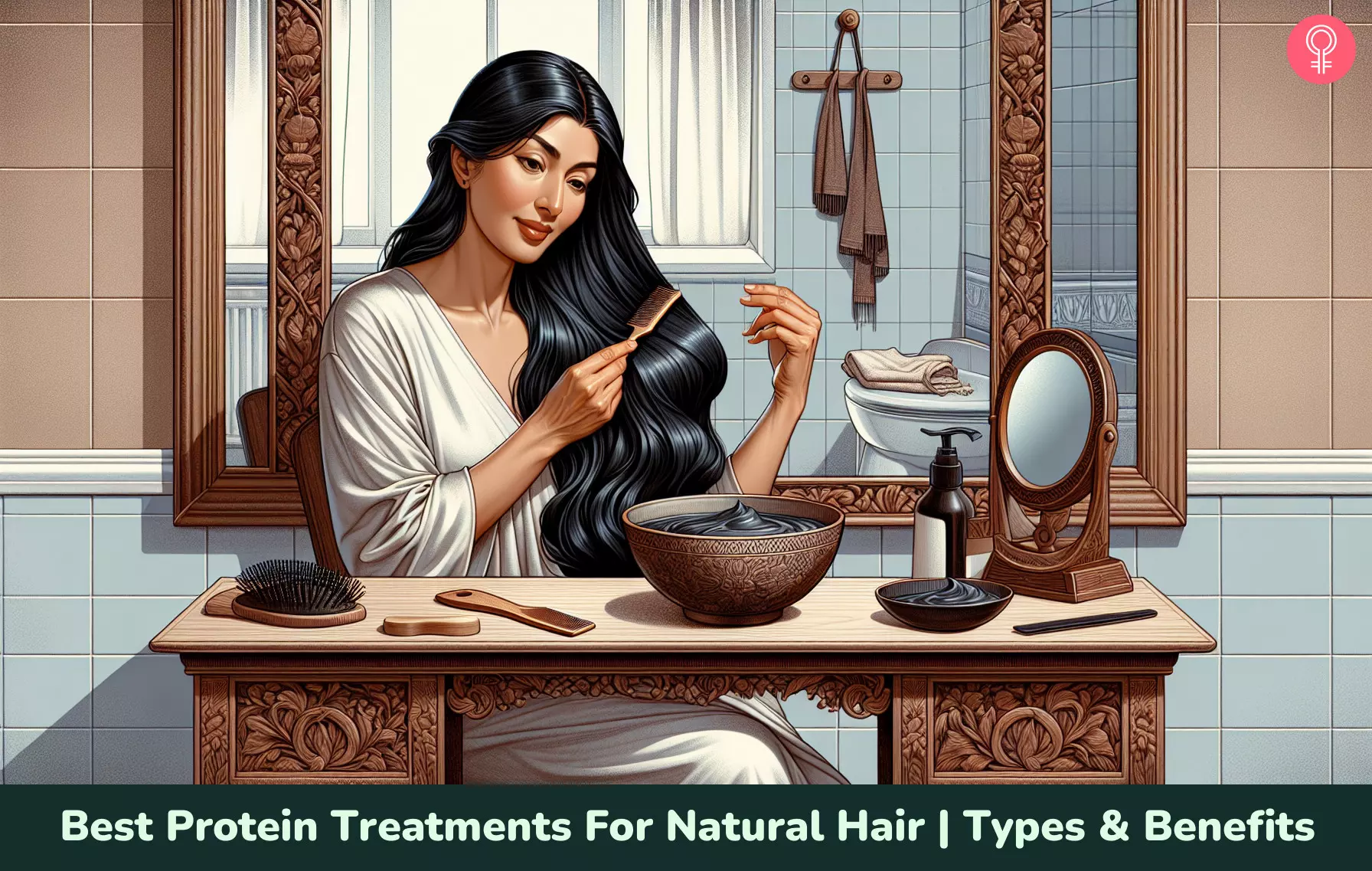
Image: Dall·E/StyleCraze Design Team
A protein treatment helps manage dry and frizzy hair. Discover what they are, the benefits they offer, and what it does for your natural hair by watching this video.
Personal Experience: Source
StyleCraze's articles are interwoven with authentic personal narratives that provide depth and resonance to our content. Below are the sources of the personal accounts referenced in this article.
i. Extreme protein deep conditioning treatment for damaged natural hair!https://www.youtube.com/watch?v=QXtd0TJbbBQ
References
Articles on StyleCraze are backed by verified information from peer-reviewed and academic research papers, reputed organizations, research institutions, and medical associations to ensure accuracy and relevance. Read our editorial policy to learn more.
- UV Damage of the Hair
https://hrcak.srce.hr/file/54884 - New keratin isolates: actives for natural hair protection
https://pubmed.ncbi.nlm.nih.gov/17728941/ - Health improvement of human hair and their reshaping using recombinant keratin K31
https://www.ncbi.nlm.nih.gov/pmc/articles/PMC6218806/ - Fatty Acid Derivatives Isolated from the Oil of Persea americana (Avocado) Protects against Neomycin-Induced Hair Cell Damage
https://pubmed.ncbi.nlm.nih.gov/33477487/ - Hair Conditioner
https://link.springer.com/chapter/10.1007/978-3-319-29419-3_4
Read full bio of Tere Pruett
Read full bio of Arshiya Syeda
Read full bio of Ramona Sinha
Read full bio of Swathi E





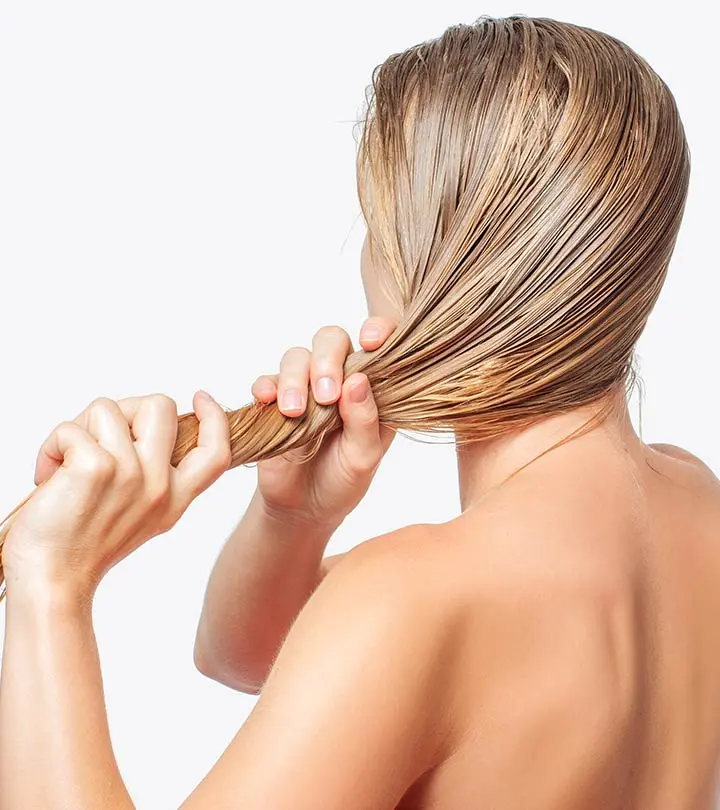
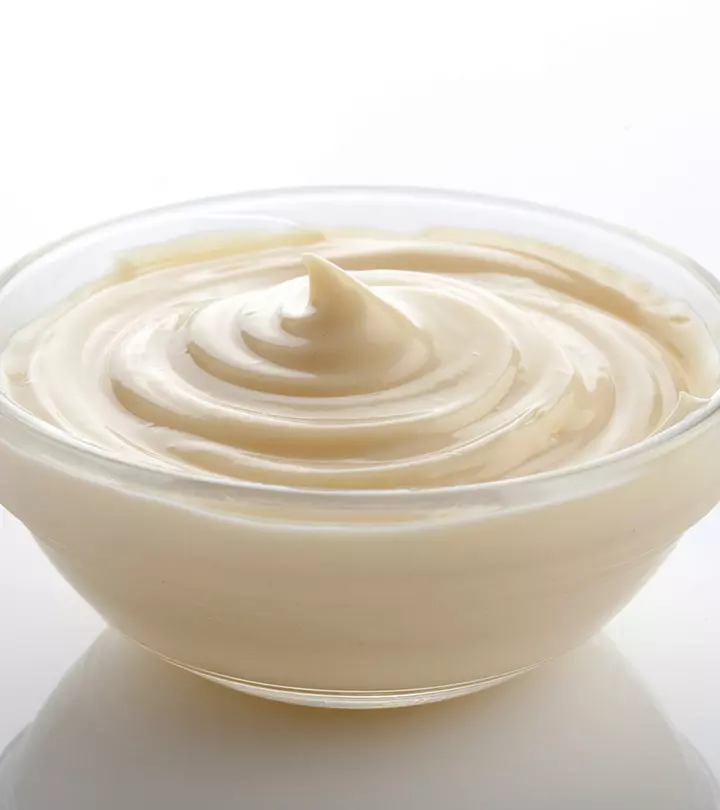
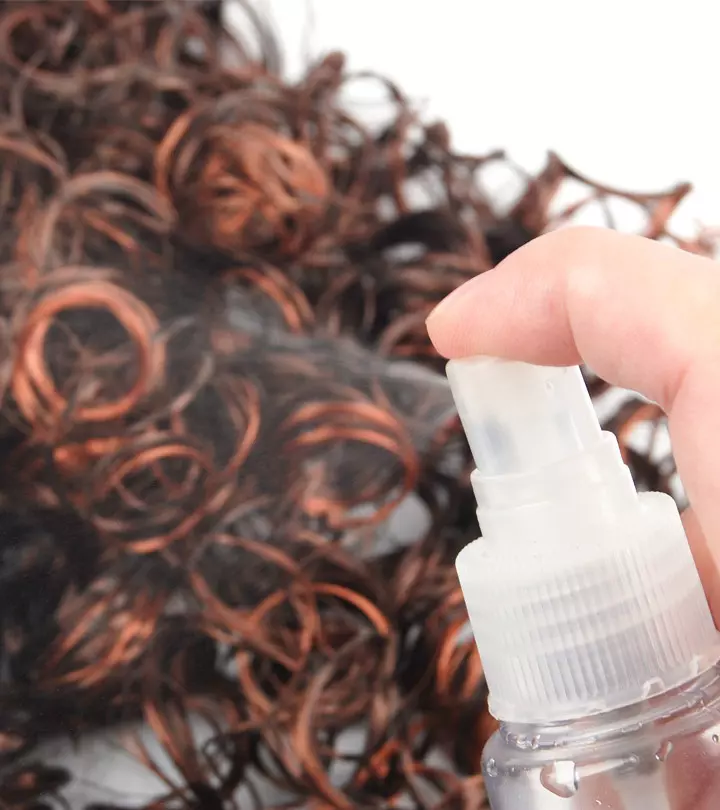
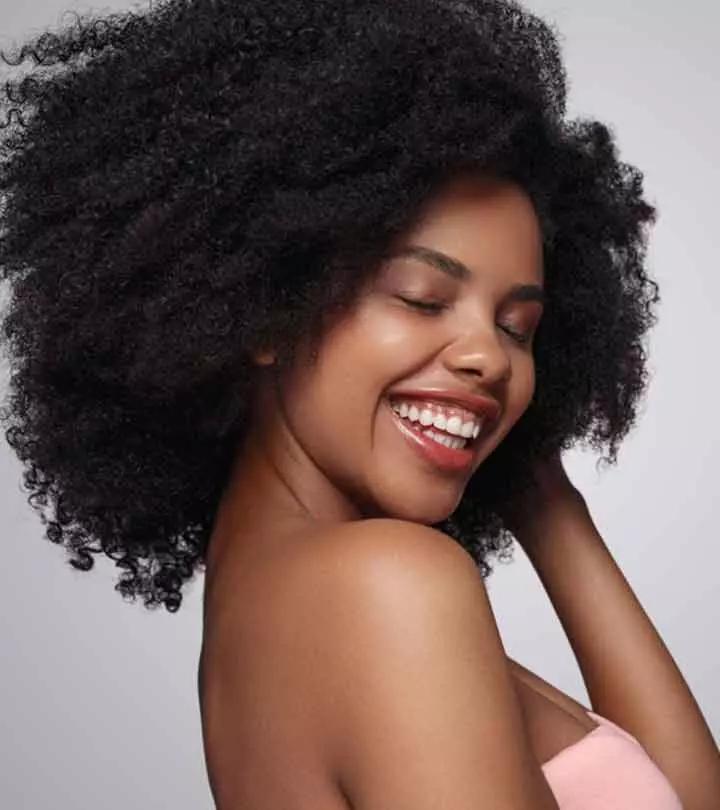
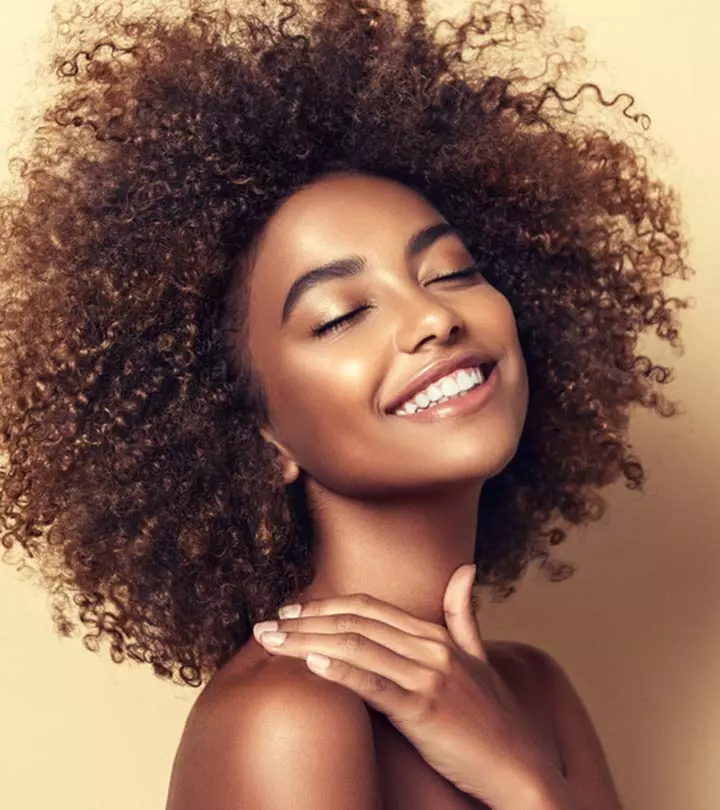
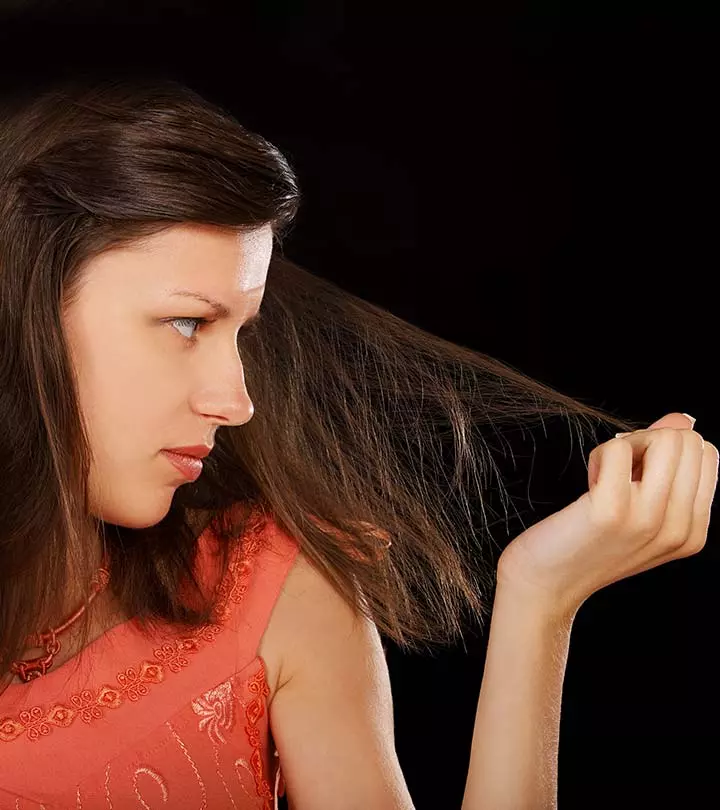

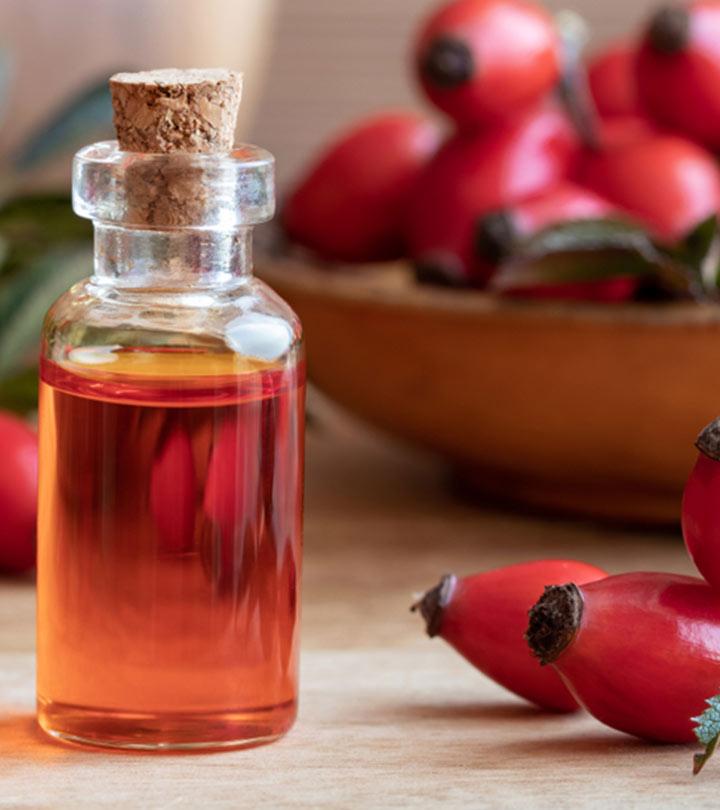
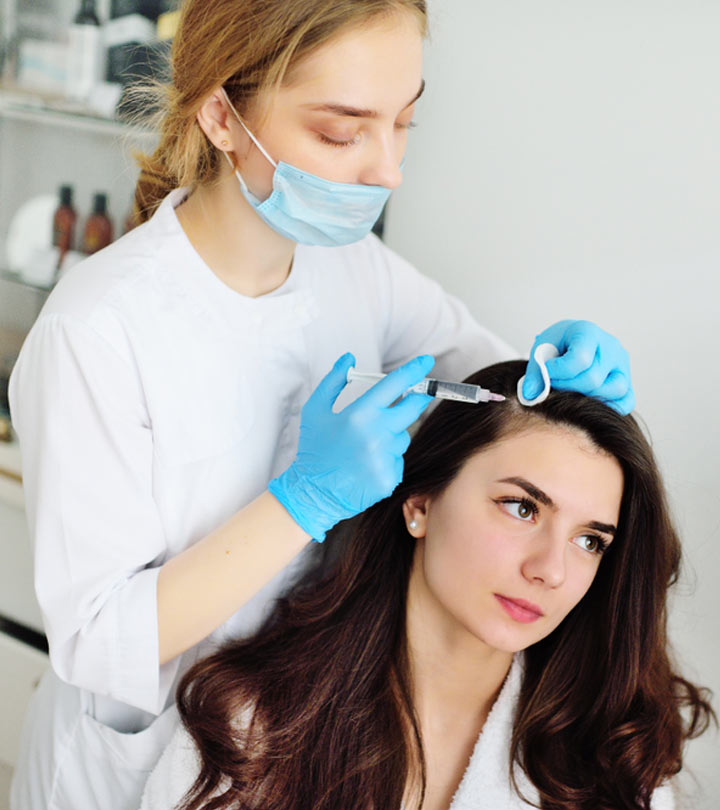


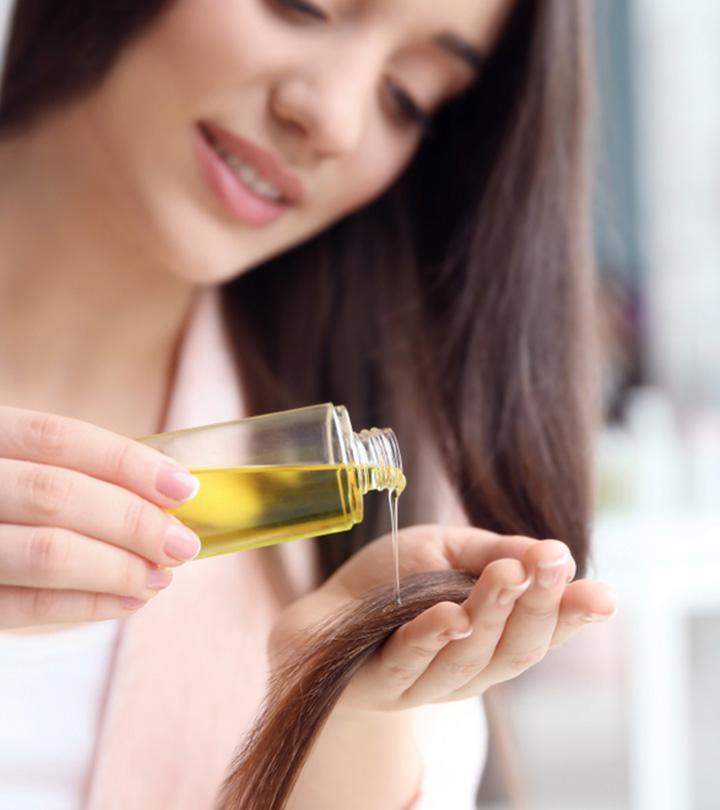

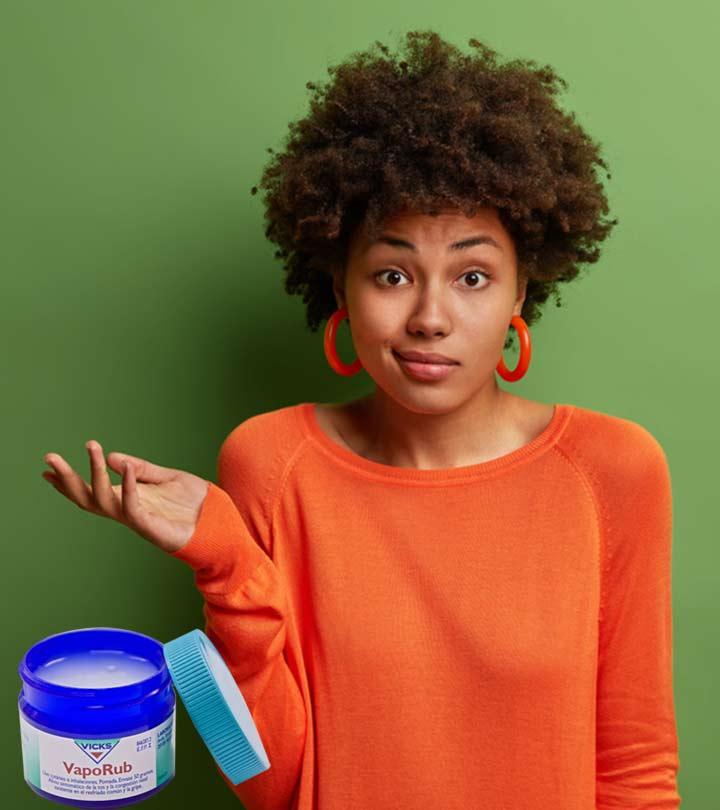
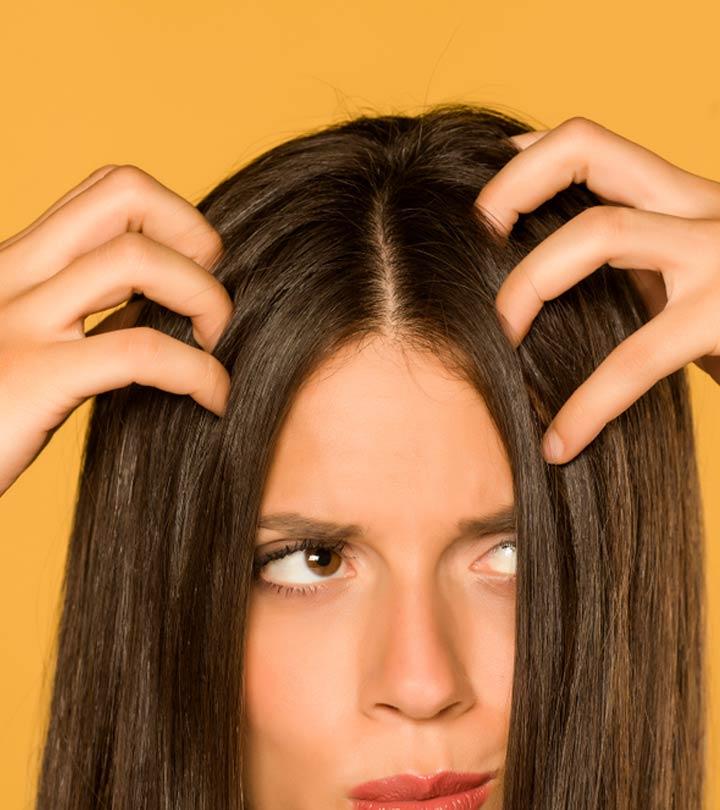


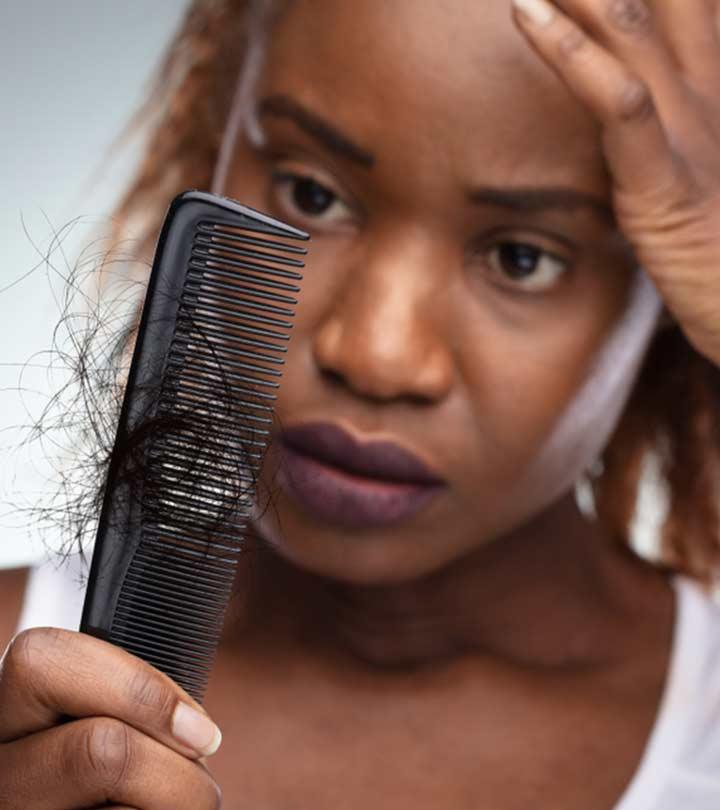
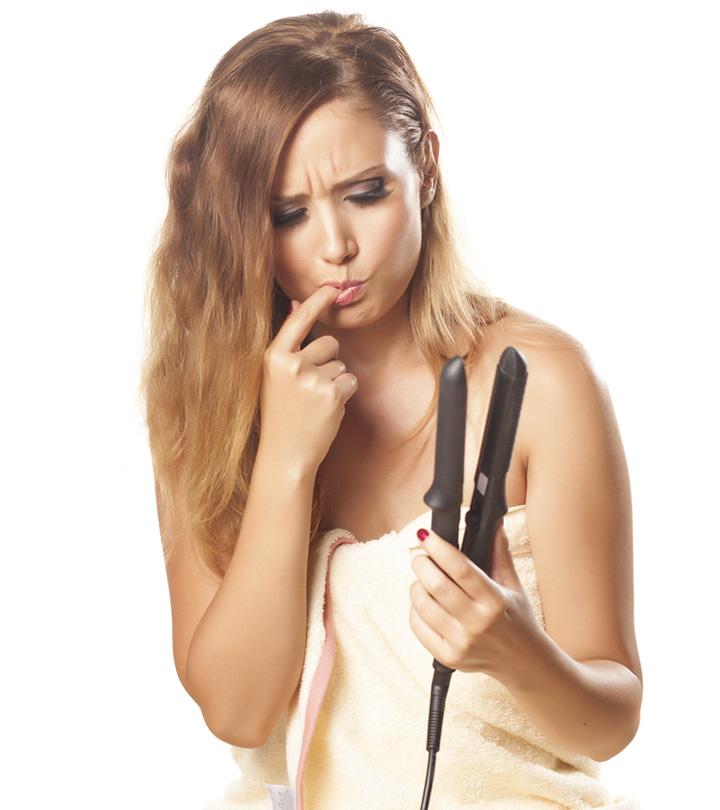
Community Experiences
Join the conversation and become a part of our empowering community! Share your stories, experiences, and insights to connect with other beauty, lifestyle, and health enthusiasts.